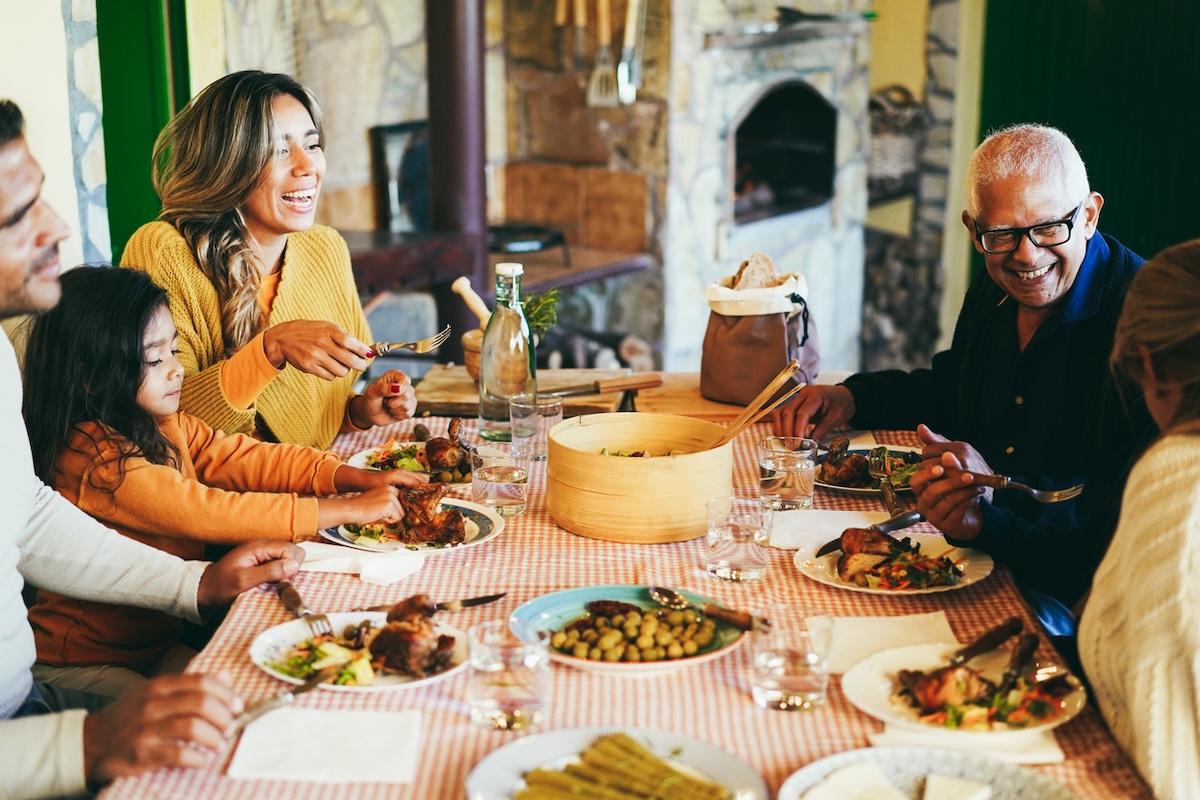[Editor's Note: This story offers evergreen insight but was originally published in December 2024.]
The winter holiday season is a time of joy and reflection, and yet many Americans anticipate tension during family gatherings following this fall’s election season. Strong feelings and opinions are increasing tensions and putting strain on relationships. However, with loneliness on the rise, maintaining connections is more important than ever.
With all this in mind, we asked TC experts Peter Coleman, Professor of Psychology and Education; Yolanda Sealey-Ruiz, Professor of English Education; and Hansun Zhang Waring, Professor of Applied Linguistics and TESOL, for their tips to navigate, and even avoid, tricky discussions during the holidays.

From left to right: Peter Coleman, Yolanda Sealey-Ruiz, and Hansun Zhang Waring (Photos: TC Archives)
Before you start packing, take time to understand your headspace
Before getting swept up in the chaos that is holiday travel, racial literacy scholar Yolanda Sealey-Ruiz encourages people to slow down and take time to better understand their current state of mind, and prepare for the feelings that will arise. “[Ask yourself] what is the self-work you need to be reflecting on, what is the nature of the relationships you might be walking into, and what are the opportunities for healing,” she says. Recognizing the difficulties we’re all facing, Sealey-Ruiz also emphasizes the importance of personal peace. “If it doesn't [bring peace], I say avoid it and start creating new practices.”
Hosts can meet with known troublemakers in advance
In families, it’s often one or two people who are sparking uncomfortable conversations, and the host can take preemptive action to build more rapport and “mitigate the worst in us,” argues conflict resolution expert Peter Coleman. One effective method is to take a walk before the meal and have a friendly conversation to check in and see how they’re doing. “Replenish[ing] that positivity reservoir of rapport, trust, respect and friendship can go a long way in mitigating people's need to attack each other over stuff that we don't really know much about,” says Coleman, Director of the Morton Deutsch International Center for Cooperation and Conflict Resolution (MD-ICCCR).

(Photo: iStock)
The way the conversation starts matters
At a group gathering, guests — but especially the host — should be intentional about the kind of exchange they want to have, according to Coleman. “I encourage whoever's holding this space takes responsibility,” he says. Opening the conversation with an inflammatory statement opens the door to passionate arguments, but starting with love and appreciation saying, “I love you all and I’m so happy you’re here even as we may differ on some things,” sets an entirely different tone.
Explore the multitudes we contain
In a conversation, participants need a base level of trust and understanding for it to function. between everyone participating, but this trust is lacking in many exchanges. One way to rebuild that trust is to take interest in the many identities that people have. “We are more than our party affiliations,” says conversation analyst Hansun Zhang Waring. “If we go beyond that box, there's so many different identities that could be made relevant and by exploring those, [you may] find commonalities.”
Be willing to listen
One of the top conflict resolution tools is listening to understand instead of listening to respond. However, this is easier said than done, especially when talking to someone you don’t agree with. To improve your listening practice, Sealey-Ruiz suggests resisting the urge to jump into a response and instead taking a pause to process. If the other person prompts you to reply before you’re ready, you can always say, “I'm taking a moment to digest,” or “I'm processing, I want to think about that some more,” or “I need to sit with this.”

(Photo: iStock)
Be intentional in your phrasing
For Waring, conversation is one of “the most democratic systems we have at our disposal” because everyone has power and agency, even if they don’t feel that way. When it comes to navigating difficult conversations, especially with people you care about, avoiding definitive statements and choosing something more open-ended can transform the trajectory and tone of a conversation. “If you start wondering, people might join you in wondering,” says Waring, founder of the Language and Social Interaction Working Group (LANSI) at TC. “[When] we make definitive statements, it's calling for a very definitive comeback because that's the position you put the other person in.”
Instead of reacting to statements, seek repair
Repair initiation — asking someone, “Can you say more?” or “What do you mean by that?” — is one of the most powerful conversational tools because it can be used as a response to anything. “It's the ultimate free agent in the infrastructure of conversation,” Waring says. It also opens the door to a deeper conversation where you’re getting a better understanding of someone’s intentions instead of just reacting.

(Photo: iStock)
You have a right to let go
Sometimes, no matter how hard you try, a productive conversation just isn’t possible. In those instances, or when the relationship has been damaged beyond repair, there’s nothing wrong with letting go of the conflict or relationship. “Letting go doesn't always mean that it's permanent, that decision is reflective of where they are and their needs in that moment,” says Sealey-Ruiz. “We're constantly changing [and] there is a possibility that friendships, even relationships in our families, can go on hiatus.”
